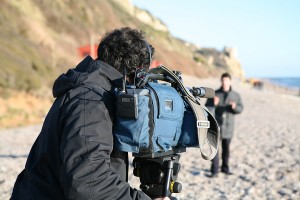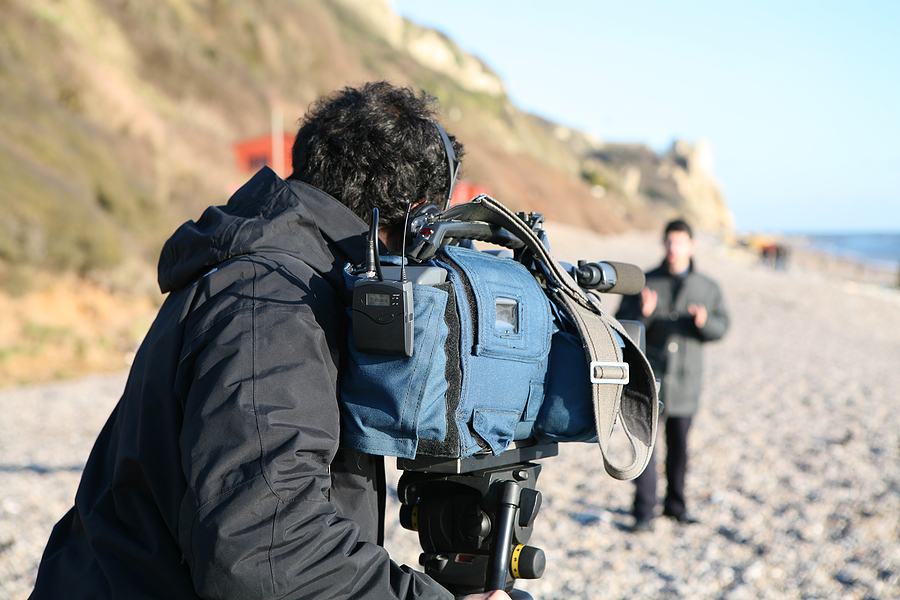Would you sign an agreement that allows strangers to film you with hidden cameras, bans you from using your Twitter or Facebook account for months and wants you to give access to your private medical records? 
Incredibly, every year tens of people sign such a ‘release form’ after being flattered into appearing in a documentary – and without reading the small print of the release form they are signing.
Because apart from expecting to film at unsocial hours and then endlessly repeating it all over the world for years to come – for some reason documentary makers seem to think that this sort of contract is fair to the interviewee – and all for no payment or at best for a paltry thank you fee that often amounts to just a few hundred pounds.
Recently, were so stunned by an agreement that came into our office – and the unfairness of it – that we have decided (without naming and shaming the documentary makers involved) to reproduce this particular release form from a documentary maker to one of our interviewees here.
The reason for this post is quite simply a quick internet search reveals little on the issue of these sorts of release forms or contracts. Yet we know from the people who come to us for help at media website Featureworld that such ‘unfair’ contracts within the media industry are rife. And as an ethical agency, which deplores this sort of behaviour, we know that this post is likely to come high in a google search and perhaps help people who don’t have an agent like us to advise them, to avoid making a costly mistake.
These sort of all rights grabbing contracts are rife quite simply because quite simply people are greedy. Some people in the media (agents, newspapers, magazines and TV documentary makers) want to con members of the public into signing over ‘all rights’ to their stories so they can do what they want with it. They do this with little thought to the interviewees, knowing that if that person signs such a release form, they will be able to make more money at that person’s expense. They guess, correctly, that often an interviewee won’t bother to read the small print – if they offer a small amount of money, that person will sign it anyway… and tough when they regret it as by then it should be too late.
This particular agreement was sent to us when for a small fee, one of our interviewees agreed to take part in what she believed was to be a straightforward documentary on dangerous weight loss.
Signing a ‘release form’ to say that you are happy to be filmed and that you realise the film will be shown is a legal requirement for appearing on TV. It’s fair enough that the TV company will want your contribution to their film to be exclusive – so you won’t be filmed for anyone else until theirs has been broadcast. And we expect that the TV company will send out a press release using your contribution to drum up interest when the documentary is aired. 
Meanwhile although we do not agree that contributors have no say over the editing of their documentary programme or how they are portrayed, and that the documentary maker can sell the programme all over the world (while we always ask interviewees for their consent to sell their story to another publication and then they are paid again) astonishingly this seems to be deemed good practice in the TV documentary industry in the UK (thankfully it isn’t the same in most countries abroad…)
But incredibly this agreement – for a young woman who due to significant weightloss is quite ill – went much further. And sadly it is typical of the sorts of agreements we often see from documentary makers who – while often coming over as oh so terribly interested and moved by an interviewee’s plight (‘It will so raise awareness of their cause and it is a cause close to my heart’) – really only have how much money they can make themselves from it at heart.
Amongst other things, this 4000 word epic – which we are sure some hot-shot TV lawyer is very proud of – means:
* She would be agreeing to hidden cameras and surveillance cameras being set up in her home without her knowledge;
* Although she is ill and so had said she could only be filmed for up to two hours a day for three days, she would also be expected to do a minimum of five days’ promotional work attending press calls and participating with interviews with other journalists (so could also end up front page news for no extra money.)
* She would be agreeing to be filmed day and night (when she believed it would just be at times to be agreed);
* She would give her consent for the film makers to access all of her medical records;
* Although she has a story that is constantly in demand by editors all over the world, she would not be allowed to do any publicity at all until six months after the broadcast was finished;
* She could not post on her own Facebook or Twitter accounts (or any other social media) without the written consent of the film makers until three months after the programme is broadcast;
* She would assign all rights to her story in perpetuity – meaning that even after her death the documentary makers could continue to show the film, sell it and make money from it.
* Her contribution could be portrayed as they wished – even in cartoon form or in adverts;
* She will indemnify them against any losses – ie this means they could sue her if they believed she let them down and they suffer a loss.
* If she hurts herself while filming, she couldn’t sue them unless it were proved they were negligent;
* She can’t talk about the programme to anyone ever otherwise it is a breach of contract.
* If she doesn’t like the way she is edited, and comes over as a proper fool, she can’t sue them – and note, it doesn’t say how she will be portrayed so that is open to question.
* The broadcaster can decide not to use her contribution after all and don’t have to give a reason.
* And although they agreed to pay her a few hundred pounds for her contribution (with no royalties and no other payments) there was no date given when this payment would actually materialise. Thus it could be months or legally – years….
* Oh yes, she also had to try to get other family members and friends to be signed up on equally unfair release forms such as this one.
Needless to say our interviewee is not going head with this, which her husband branded ‘a joke’. Instead, she will be earning the same amount of money for a straightforward article in a magazine that will be read back to her to check she is happy with it prior to publication.
If you are asked to be in a documentary you might initially be flattered. But if you get a contract like this you don’t need to have an agent or take legal advice (which incidentally to negotiate a contract like this would cost you thousands of pounds with a media lawyer) – all you need to do is trust your gut instinct.
Here’s what you do – unless they are paying you hundreds of thousands to be in the film (and even then I would not agree to any contact like this) you say no and you run a mile.
And while at Featureworld we can only give our own interviewees advice, if you have been contacted by a documentary maker, you are likely to have a story to sell. If you want to earn money without the worry of signing away your rights, then do contact us for free and independent advice.
At Featureworld no interviewee relinquishes any of their rights. You always own your story and our agreements are more concerned about what we can do for you and reassuring you your story is in safe hands.
Meanwhile we will carry on publishing contracts like this which we deem to be extraordinarily unfair and we will carry on exposing the ways that innocent members of the public can find themselves exploited.
Have you regretted being in a documentary – contact us here if you would like to expose poor practice, including signing what you now believe to be an unfair contract.


